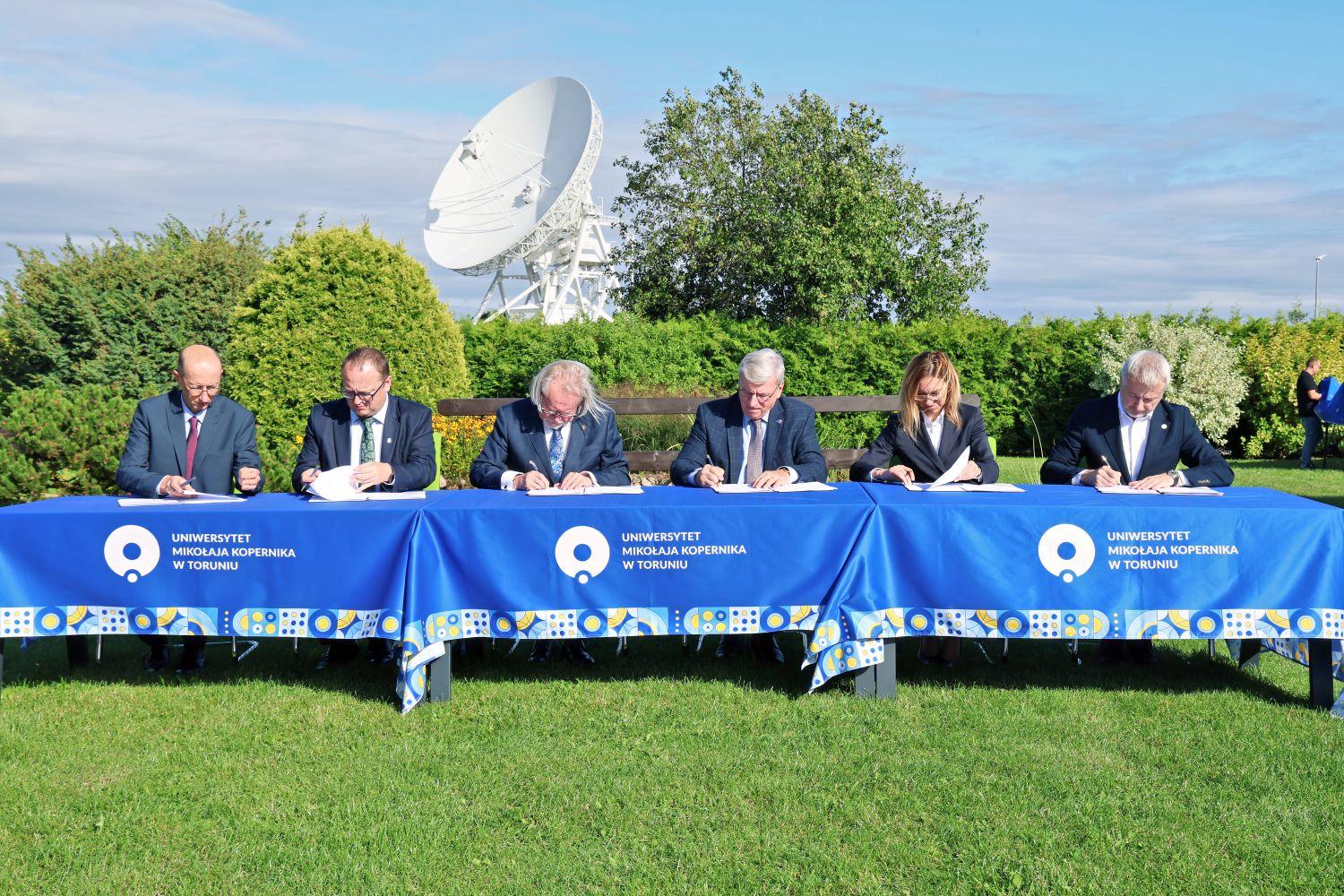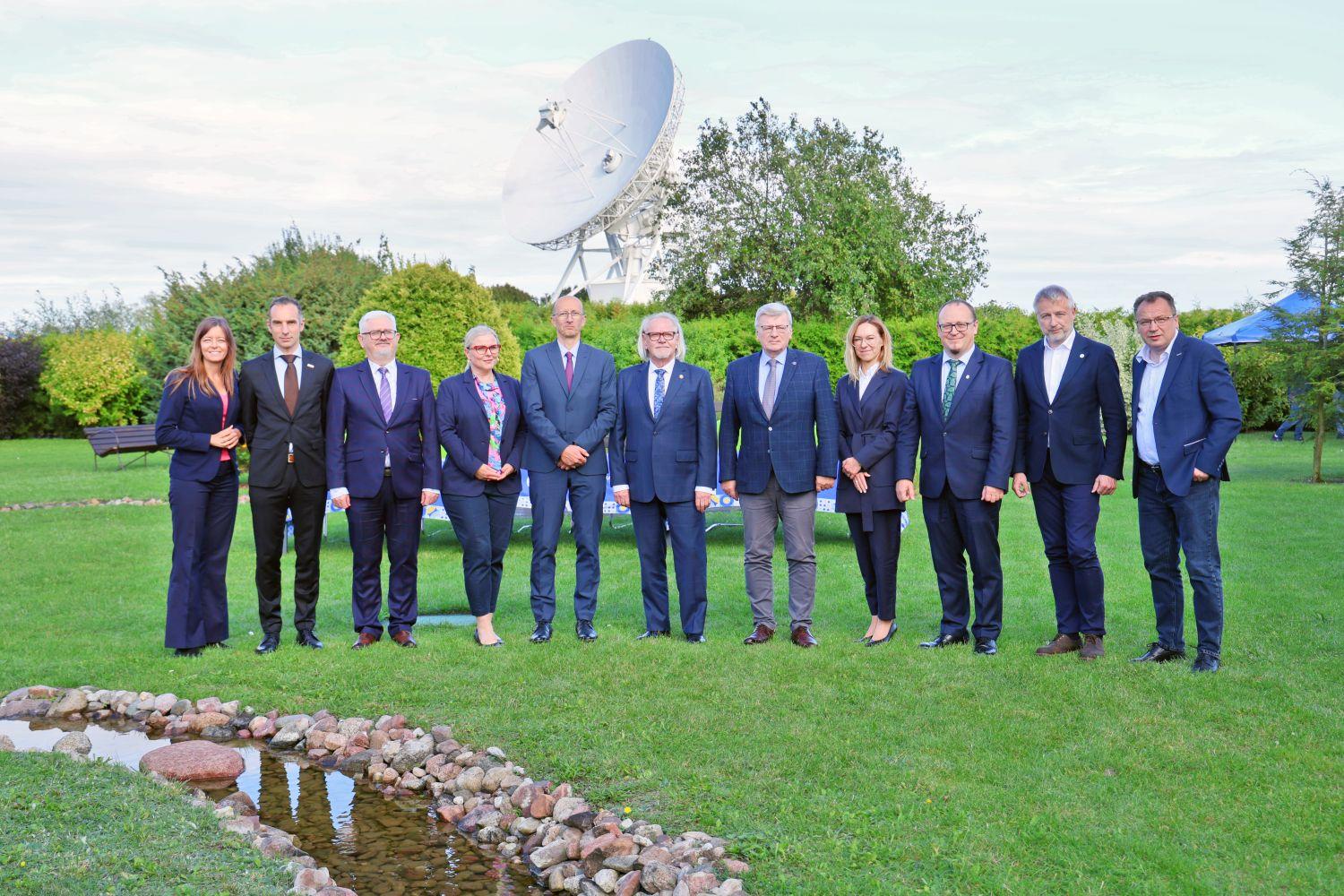Polish SKA Consortium established
Leaders of the eight Polish universities and science institutes came together in Piwnice on Monday 15 September to sign the foundational documents for the country’s SKA Consortium.
“The SKA Observatory is currently the largest radio telescope network in the world, and Poland is applying to join,” said Dr Adam Kola, professor at Nicolaus Copernicus University and Vice-Rector for Research.
“We have just signed an agreement to establish the Polish Consortium for this project – it includes six universities and two research institutes. We hope this will establish our position as a leading astronomical country for the next half-century.”

Poland’s history in radio astronomy dates back to the 1950s when the first Polish radio telescope was built at the Astronomical Observatory of the Jagiellonian University in Kraków. Today, the country is already active in international radio astronomy projects across Europe. A 32-metre radio telescope at the Nicolaus Copernicus University Observatory is a node in the European VLBI Network and three locations spread across the country (Borówiec, Łazy and Bałdy) host antenna stations of the LOFAR telescope – an SKA precursor telescope that operates at the lowest radio frequencies measurable from Earth.
The new Polish SKA Consortium now plans to take the country’s expertise to the world stage, enabling collaborations with other countries at the forefront of radio astronomy.
“Following very positive interactions with Polish Minister Szeptycki in June at the SKAO Science Meeting in Zgorzelec/Görlitz, this marks a next and crucial step towards a Polish partnership with the SKAO,” said SKAO Head of International Relations Thijs Geurts.
“The prospect of welcoming Poland into the current family of member states is very exciting, as we will be able to benefit from the significant Polish contributions to astronomy, past and present.”
Aiming to get SKAO on the Polish national roadmap for research infrastructures, the country’s SKA Consortium will be coordinated by the Nicolaus Copernicus University and initially consist of eight institutions: the University of Warsaw, the Jagiellonian University in Kraków, the Nicolaus Copernicus Astronomical Centre of the Polish Academy of Sciences, the National Centre for Nuclear Research, the University of Warmia and Mazury in Olsztyn, the University of Szczecin, the University of Zielona Góra and the Nicolaus Copernicus University in Toruń.





